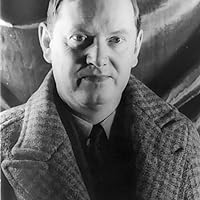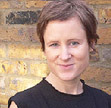Adaptation Quotes
Quotes tagged as "adaptation"
Showing 211-240 of 245

“John Laroche: You know why I like plants?
Susan Orlean: Nuh uh.
John Laroche: Because they're so mutable. Adaptation is a profound process. Means you figure out how to thrive in the world.
Susan Orlean: [pause] Yeah but it's easier for plants. I mean they have no memory. They just move on to whatever's next. With a person though, adapting almost shameful. It's like running away.”
― Adaptation.: The Shooting Script
Susan Orlean: Nuh uh.
John Laroche: Because they're so mutable. Adaptation is a profound process. Means you figure out how to thrive in the world.
Susan Orlean: [pause] Yeah but it's easier for plants. I mean they have no memory. They just move on to whatever's next. With a person though, adapting almost shameful. It's like running away.”
― Adaptation.: The Shooting Script
“My simple explanation of why we human beings, the most advanced species on earth, cannot find happiness, is this: as we evolve up the ladder of being, we find three things: the first, that the tension between the range of opposites in our lives and society widens dramatically and often painfully as we evolve; the second, that the better informed and more intelligent we are, the more humble we have to become about our ability to live meaningful lives and to change anything, even ourselves; and consequently, thirdly, that the cost of gaining the simplicity the other side of complexity can rise very steeply if we do not align ourselves and our lives well.”
―
―
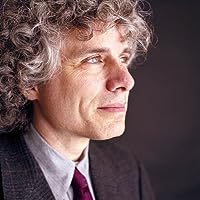
“A...reason we are so-so scientists is that our brains were shaped for fitness, not for truth. Sometimes truth is adaptive, but sometimes it is not.”
― How the Mind Works
― How the Mind Works
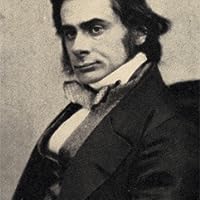
“The facts of variability, of the struggle for existence, of adaptation to conditions, were notorious enough; but none of us had suspected that the road to the heart of the species problem lay through them, until Darwin and Wallace dispelled the darkness.”
―
―
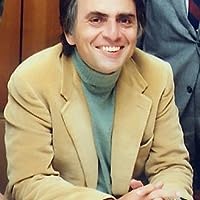
“The secrets of evolution are death and time—the deaths of enormous numbers of lifeforms that were imperfectly adapted to the environment; and time for a long succession of small mutations.”
― Cosmos
― Cosmos
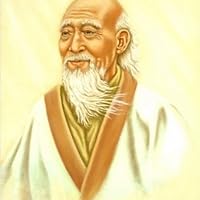
“De wijze heeft geen onwrikbare beginselen. Hij past zich aan anderen aan.
(Free translation into English: The wise man has no firm principles. He adapts to others.)”
―
(Free translation into English: The wise man has no firm principles. He adapts to others.)”
―

“...if an organised body is not in the situation and circumstances best adapted to its sustenance and propagation, then, in conceiving an indefinite variety among the individuals of that species, we must be assured, that, on the one hand, those which depart most from the best adapted constitution, will be the most liable to perish, while, on the other hand, those organised bodies, which most approach to the best constitution for the present circumstances, will be best adapted to continue, in preserving themselves and multiplying the individuals of their race.”
― Investigation of the Principles of Knowledge and of the Progress of Reason, from Sense to Science and Philosophy
― Investigation of the Principles of Knowledge and of the Progress of Reason, from Sense to Science and Philosophy
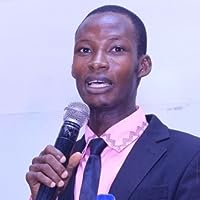
“If you don’t see the images on a screen because people block your view, it is easier to adjust your sitting position than to call for an adjustment of the screen! You need to change yourself!”
― The Great Hand Book of Quotes
― The Great Hand Book of Quotes

“Only those who are able to adapt to changing scenarios will continue to survive and prosper. Success is directly proportional to the degree of positive adaptation to change.”
― VishwaSutras: Universal Principles For Living: Inspired by Real-Life Experiences
― VishwaSutras: Universal Principles For Living: Inspired by Real-Life Experiences

“[I]t wasn't so much the mistakes that people made but how flexible they were in their aftermath that made all the difference in how their lives turned out.”
― The Star Side of Bird Hill
― The Star Side of Bird Hill

“In Paley's famous illustration, the adaptation of all the parts of the watch to the function, or purpose, of showing the time, is held to be evidence that the watch was specially contrived to that end; on the ground, that the only cause we know of, competent to produce such an effect as a watch which shall keep time, is a contriving intelligence adapting the means directly to that end.
Suppose, however, that any one had been able to show that the watch had not been made directly by any person, but that it was the result of the modification of another watch which kept time but poorly; and that this again had proceeded from a structure which could hardly be called a watch at all—seeing that it had no figures on the dial and the hands were rudimentary; and that going back and back in time we came at last to a revolving barrel as the earliest traceable rudiment of the whole fabric. And imagine that it had been possible to show that all these changes had resulted, first, from a tendency of the structure to vary indefinitely; and secondly, from something in the surrounding world which helped all variations in the direction of an accurate time-keeper, and checked all those in other directions; then it is obvious that the force of Paley's argument would be gone. For it would be demonstrated that an apparatus thoroughly well adapted to a particular purpose might be the result of a method of trial and error worked by unintelligent agents, as well as of the direct application of the means appropriate to that end, by an intelligent agent.
Now it appears to us that what we have here, for illustration's sake, supposed to be done with the watch, is exactly what the establishment of Darwin's Theory will do for the organic world. For the notion that every organism has been created as it is and launched straight at a purpose, Mr. Darwin substitutes the conception of something which may fairly be termed a method of trial and error. Organisms vary incessantly; of these variations the few meet with surrounding conditions which suit them and thrive; the many are unsuited and become extinguished.”
― Criticism on "The Origin of Species"
Suppose, however, that any one had been able to show that the watch had not been made directly by any person, but that it was the result of the modification of another watch which kept time but poorly; and that this again had proceeded from a structure which could hardly be called a watch at all—seeing that it had no figures on the dial and the hands were rudimentary; and that going back and back in time we came at last to a revolving barrel as the earliest traceable rudiment of the whole fabric. And imagine that it had been possible to show that all these changes had resulted, first, from a tendency of the structure to vary indefinitely; and secondly, from something in the surrounding world which helped all variations in the direction of an accurate time-keeper, and checked all those in other directions; then it is obvious that the force of Paley's argument would be gone. For it would be demonstrated that an apparatus thoroughly well adapted to a particular purpose might be the result of a method of trial and error worked by unintelligent agents, as well as of the direct application of the means appropriate to that end, by an intelligent agent.
Now it appears to us that what we have here, for illustration's sake, supposed to be done with the watch, is exactly what the establishment of Darwin's Theory will do for the organic world. For the notion that every organism has been created as it is and launched straight at a purpose, Mr. Darwin substitutes the conception of something which may fairly be termed a method of trial and error. Organisms vary incessantly; of these variations the few meet with surrounding conditions which suit them and thrive; the many are unsuited and become extinguished.”
― Criticism on "The Origin of Species"
“Man is a product of nature, a part of the Universe. The Universe is operated under exact natural laws. Man is a product of millions of years of evolution. He adapts himself to the laws of nature or he perishes.”
―
―
“When you talk with people, one of the arguments they'll throw back at you is that the climate has always changed, and that is absolutely right. It's the rate of change that is the problem right now. It's changing so quickly that it exceeds the adaptive capacity of some species.”
―
―

“ADEPT ADAPTATION
Potholes on the road of life sharpen our maneuverability skills
Kamil Ali”
― Profound Vers-A-Tales
Potholes on the road of life sharpen our maneuverability skills
Kamil Ali”
― Profound Vers-A-Tales

“The mind is not designed to grasp the laws of probability, even though the laws rule the universe.”
― How the Mind Works
― How the Mind Works
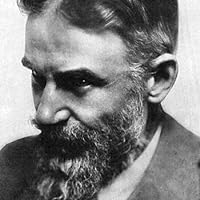
“People see a Macbeth film. They imagine they have seen Macbeth, and don't want to see it again; so when your Mr. Hackett or somebody comes round to act the play, he finds the house empty. That is what has happened to dozens of good plays whose authors have allowed them to be filmed. It shall not happen to mine if I can help it.”
― Authors on film
― Authors on film

“Culture is always on the move.”
― American Nations: A History of the Eleven Rival Regional Cultures of North America
― American Nations: A History of the Eleven Rival Regional Cultures of North America

“We are always people that are in the making, constantly adapting to accommodate the roads we walk. As we learn, it changes us. As we go about our course, we grow, and prune everything around us; friends, beliefs, desires. Our past experiences plant the seeds needed for our future roads, with all its turns, speed, and treachery.”
― Nature Of Occurrences
― Nature Of Occurrences
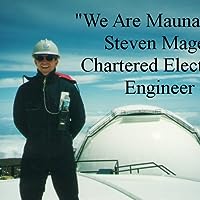
“There were three people in my home and I was the only one showing Electromagnetic Hypersensitivity and reactivity to the radio frequency transmitting utility meters. For these reasons I did not shield my home and took the route of adapting my body to the toxic electromagnetic environment.”
― Curing Electromagnetic Hypersensitivity
― Curing Electromagnetic Hypersensitivity
“I am suggesting here that organisms have a built-I capability of adapting to their environment. I am suggesting that to the extent that evolution occurs, it occurs at the level of the organism. This suggestion differs sharply from the thesis of the NDT, which holds that evolution occurs only at the level of the population. Organisms contain within themselves the information that enables them to develop a phenotype adaptive to a variety of environments. The adaptation can occur by a change in the genome through a genetic change triggered by the environment, or it can occur without any genetic change.”
―
―

“By the time we are convinced of the climate change impacts; there would be nothing we could do to help.”
― LOVE, HATRED AND MADNESS
― LOVE, HATRED AND MADNESS

“Innovators "view failure not as a fatal character flaw but as a learning experience.”
― The Reinventors: How Extraordinary Companies Pursue Radical Continuous Change
― The Reinventors: How Extraordinary Companies Pursue Radical Continuous Change
“in spite of the phenomenal growth of the Internet and mobile devices, I still believe television will continue to be an incredibly important medium for the Church. After all, over the last century, radio never killed movies, and TV never killed radio. Everything finds its level in the media universe.”
―
―

“That was how a Salomon bond trader thought: He forgot whatever it was that he wanted to do for a minute and put his finger on the pulse of the market. If the market felt fidgety, if people were scared or desperate, he herded them like sheep into a corner, then made them pay for their uncertainty. He sat on the market until it puked gold coins. Then he worried about what he wanted to do.”
― Liar's Poker
― Liar's Poker

“On the rare occasions on which a movie was shown, there was as much suspense in the audience over whether the electricity would hold out to the end of the film as there was in the film itself.”
― The Path to Power
― The Path to Power
“Among the things most characteristic of organisms--most distinctive of living as opposed to inorganic systems--is a sort of directedness. Their structures and activities have an adaptedness, an evident and vital usefulness to the organism. Darwin's answer and ours is to accept the common sense view...[that] the end ("telos") [is] that the individual and the species may survive. But this end is (usually) unconscious and impersonal. Naive teleology is controverted not by ignoring the obvious existence of such ends but by providing a naturalistic, materialistic explanation of the adaptive characteristics serving them. [Book review in "Science," 1959, p. 673.]”
―
―
All Quotes
|
My Quotes
|
Add A Quote
Browse By Tag
- Love Quotes 99k
- Life Quotes 77k
- Inspirational Quotes 74k
- Humor Quotes 44k
- Philosophy Quotes 30k
- Inspirational Quotes Quotes 27.5k
- God Quotes 26.5k
- Truth Quotes 24k
- Wisdom Quotes 24k
- Romance Quotes 23.5k
- Poetry Quotes 22.5k
- Death Quotes 20k
- Life Lessons Quotes 20k
- Happiness Quotes 19k
- Quotes Quotes 18k
- Faith Quotes 18k
- Hope Quotes 18k
- Inspiration Quotes 17k
- Spirituality Quotes 15.5k
- Religion Quotes 15k
- Motivational Quotes 15k
- Writing Quotes 15k
- Relationships Quotes 14.5k
- Life Quotes Quotes 14.5k
- Love Quotes Quotes 14.5k
- Success Quotes 13.5k
- Time Quotes 12.5k
- Motivation Quotes 12.5k
- Science Quotes 12k
- Motivational Quotes Quotes 11.5k

